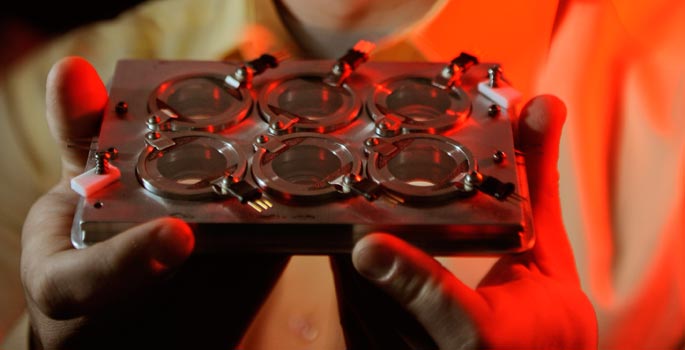Featured Research
-

Kids who think Dad works too much more likely to bully
Do your children think you work too much and don’t spend enough time with them? If so, their perception could lead to bullying behavior, according to research by Vanderbilt University sociologist Andre Christie-Mizell. “Our behavior is driven by our perception of our world, so if children feel they… Read MoreJan 27, 2011
-

Vanderbilt’s role in largest digital sky image
The Sloan Digital Sky Survey-III collaboration, which includes Vanderbilt University, has resulted in a picture of the sky so big that it would take 500,000 high-definition TVs to view it at full resolution. The color image contains more than a trillion pixels and covers about one-third of the entire sky. Read MoreJan 13, 2011
-

Scripps Research and Vanderbilt launch joint institute to advance science at interface of chemistry and medicine
Personalized medicine refers to the relationship between genetic differences among individuals and corresponding differences in their chemical state and how they respond to various nutrients, drugs, and compounds in their environment. (Photo courtesy of Scripps Research Institute) Leftover blood samples from Vanderbilt’s clinics are retrieved daily from the Pathology lab. Read MoreJan 13, 2011
-

Brain imaging predicts future reading progress in children with dyslexia
(Photo credit: iStock photo) Brain scans of adolescents with dyslexia can be used to predict the future improvement of their reading skills with an accuracy rate of up to 90 percent, new research indicates. Advanced analyses of the brain activity images are significantly more accurate in driving predictions than standardized… Read MoreDec 20, 2010
-

Lessons learned from urban cultural tax plans focus of Vanderbilt study
Nashville Jazz Band, directed by Jim Williamson, performing in Ingram Hall with the Blair Big Band. (Photo credit: Vanderbilt University / Steve Green) Proponents of creating a cultural tax district for Nashville would need to identify community-specific goals that address voters’ shared values and ideals, according to a report prepared… Read MoreDec 7, 2010
-

Babies’ biological clocks dramatically affected by birth light cycle
Graduate student Chris Ciarleglio who performed the study in the McMahon Lab that found the circadian clock in mammals is imprinted by the day/night cycle when an individual is born. The finding may help explain why people born in the winter at high latitudes are at greater risk for seasonal… Read MoreDec 6, 2010